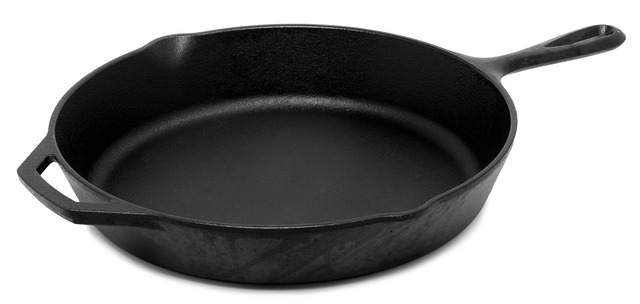Banish Bloat: Uncover Causes and Discover Relief
Bloating affects countless individuals, particularly women, causing discomfort and frustration. This comprehensive guide delves into the root causes of abdominal distension and explores a range of effective treatments. From dietary adjustments to lifestyle changes, discover practical strategies to alleviate bloating, enhance digestive health, and reclaim your comfort. Learn when to seek professional help and empower yourself with knowledge to combat this common yet bothersome condition.

Understanding Bloating: Causes and Contributing Factors
Bloating is a prevalent digestive issue that can significantly impact one’s quality of life. To effectively address this concern, it’s crucial to identify the underlying causes. Here are some common factors that contribute to bloating:
-
Food intolerances and sensitivities: Certain foods, such as dairy or gluten, can trigger bloating in sensitive individuals.
-
Overeating or eating too quickly: Consuming large portions or rushing through meals can lead to excess gas and discomfort.
-
Gut microbiome imbalances: An unhealthy gut flora can disrupt digestion and cause bloating.
-
Gastrointestinal disorders: Conditions like irritable bowel syndrome (IBS) or celiac disease often manifest with bloating symptoms.
-
Hormonal changes: Women may experience increased bloating during menstruation or menopause due to hormonal fluctuations.
-
Aerophagia: Swallowing excess air while eating, drinking, or chewing gum can contribute to abdominal distension.
-
Digestive sluggishness: Constipation or slow digestion can result in bloating and discomfort.
Recognizing your specific triggers is key to developing an effective management strategy for bloating.
The Diet-Bloating Connection: Navigating Food Choices
Diet plays a pivotal role in managing bloating, especially for women who may be more susceptible to digestive issues. Consider these dietary factors that can exacerbate bloating:
-
Fiber-rich foods: While essential for digestive health, a sudden increase in fiber intake can cause temporary bloating.
-
FODMAP-containing foods: These fermentable carbohydrates can trigger gas and bloating in sensitive individuals.
-
Lactose: Dairy products can cause discomfort for those with lactose intolerance.
-
Sodium-rich foods: Excessive salt intake may lead to water retention and bloating.
-
Artificial sweeteners: Some individuals find these difficult to digest, resulting in gas and bloating.
To manage bloating through diet, consider keeping a detailed food journal to identify trigger foods. Gradually increase fiber intake, stay well-hydrated, and explore low-FODMAP options if necessary. Some women find relief by eliminating specific problematic foods from their diet.
Effective Strategies for Bloating Relief
Combating bloating often requires a multi-faceted approach. Here are several effective treatments to consider:
-
Dietary modifications: Eliminate trigger foods and incorporate gut-friendly options like fermented foods.
-
Enzyme supplements: Over-the-counter digestive enzymes can aid in breaking down complex carbohydrates.
-
Herbal remedies: Peppermint oil, known for its antispasmodic properties, may alleviate bloating and digestive discomfort.
-
Regular physical activity: Exercise can stimulate digestion and reduce bloating.
-
Stress reduction techniques: Practices like mindfulness meditation or yoga can help manage stress-related digestive issues.
-
Probiotic supplementation: Beneficial bacteria can help balance gut flora and improve overall digestion.
-
Prescription medications: In some cases, healthcare providers may recommend antispasmodics or other medications to address underlying conditions.
Always consult with a healthcare professional before starting any new treatment regimen, particularly if you experience persistent or severe bloating.
Enhancing Digestive Health to Prevent Bloating
Maintaining optimal digestive health is crucial for preventing bloating and other gastrointestinal issues. Implement these strategies to support your digestive system:
-
Practice mindful eating: Chew thoroughly and eat slowly to aid digestion and reduce air swallowing.
-
Prioritize hydration: Adequate water intake helps prevent constipation, a common cause of bloating.
-
Embrace fermented foods: Incorporate probiotic-rich options like yogurt, kefir, and sauerkraut to promote healthy gut bacteria.
-
Monitor portion sizes: Overeating can lead to bloating, so practice portion control.
-
Establish regular meal times: Consistent eating schedules can help regulate digestion.
-
Moderate alcohol and caffeine intake: Both can irritate the digestive system and contribute to bloating.
-
Prioritize quality sleep: Poor sleep can negatively impact digestive health and exacerbate bloating.
By adopting these habits, you can support your digestive system and reduce the likelihood of experiencing bloating.
When to Seek Medical Advice for Bloating
While occasional bloating is normal, certain symptoms warrant professional medical attention:
- Persistent bloating that doesn’t improve with lifestyle changes
- Severe abdominal pain or discomfort
- Unexplained weight loss
- Blood in stool or changes in bowel habits
- Frequent nausea or vomiting
- Bloating accompanied by fever or other systemic symptoms
These symptoms could indicate a more serious underlying condition that requires medical evaluation. A healthcare provider can perform necessary tests and provide an accurate diagnosis and appropriate treatment plan.
Conclusion: Taking Control of Your Digestive Health
Bloating is a common digestive issue that can significantly impact quality of life, particularly for women. By understanding its causes, implementing appropriate dietary and lifestyle changes, and seeking medical advice when necessary, most individuals can find relief from bloating and improve their overall digestive health. Remember that everyone’s digestive system is unique, so patience and experimentation may be necessary to find the most effective treatment approach for your individual needs.
This article is intended for informational purposes only and should not be considered medical advice. Always consult a qualified healthcare professional for personalized guidance and treatment.




